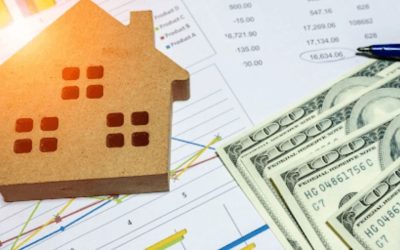As you begin building your wealth for retirement, like any other investor, you’re looking for the best returns over time and avoiding mis sold investments. As such, it’s common to see people investing in property or pensions as their nest egg for retirement.
Though the property vs. pension debate has been going on for years, they are the best capital investments that increase in value in the long run. This article weighs the differences between investing in property and a pension so that you can decide on the best route to take.
An Overview of Property Investment
Property has always been the best investment choice thanks to the severe housing shortage coupled with the ever-rising rent across the UK. So, it’s easy to see why property investment remains a top choice both as a buy-to-let landlord and homeowner. If you are looking for a holiday home then luxury villas and homes to rent might be more up your street!
Investing in a property begins with a down payment and a mortgage that you’ll settle over a set time. The average house deposit is usually £57,300, but it depends on several factors, such as the property’s location, type and condition.
You don’t have to worry about the mortgage part with a buy-to-let property. The rental income provides a steady cash flow to cover the monthly mortgage payments. The best part about property investment is that you can increase the value of your home for more profits.
Investing in property for your retirement offers you both short and long-term gains. While rental income provides you with a constant passive cash flow, properties increase in value, and you can hold onto the property and sell it at a profit down the line.
Pros of Property Investment
- Provides a combination of potential long-term profit and rental income
- Property is a tangible investment that continues to grow in demand
- You start reaping the fruits of your investments even before retirement
- The prices of property have remained strong despite economic uncertainty
Cons of Property Investment
- It’s expensive maintaining a property
- Selling property attracts fees and taxes
- It may take months to sell the property, affecting your liquidity
An Overview of A Pension
A pension guarantees you financial stability when you’re no longer working. It requires putting money gradually into your pension fund over your working life. You may contribute monthly or opt for lump sum payments with tax-free allowances of up to £40,000 per year.

You can never go wrong investing in a pension. Not only do you enjoy tax relief, but you may withdraw 25% of your pension fund tax-free when you retire. The more you invest in your pension, the higher its worth will be when you retire.
Pros of Investing in Pension
- It’s the most tax-efficient way to save due to tax benefits
- Employer contribution and tax relief boosts your pension fund
- You can withdraw 25% of your pension fund tax-free
- Pension fund builds up compound interest
Cons of Investing in Pension
- You have to wait till you’re 55 to access your funds
- Frequent changes in rules make it complicated
Comparison Between Property and Pension
While both property and pension investments grow in value in the long run, they operate differently. Here is a comparison between the two:

Tax Benefits
It’s no secret that investing in property is expensive because of the high tax rate. Stamp duty and capital gain tax can eat away a sizeable chunk of your profits when you sell an investment property. You also have to contend with maintenance, insurance and the risk of tenants not paying rent.
In addition, you must declare your income from the buy-to-let as part of your self-assessment tax return. Depending on your tax band, the government then charges your income from 20% to 45%.
It’s quite the opposite when it comes to investing in pensions. You enjoy tax relief, and your pension fund is protected from capital gains and income tax, significantly affecting your pension fund over time.
Returns
In recent years, the value of the property has grown exponentially. The average home prices in the UK increased by 12.6% to October 2022 to sell at a record high of £296,422, compared to £57,726 in April 1990. Despite the hefty taxes, you can expect to win significant gains from property investment.
Pension also experienced impressive growth from 2.6% fund growth in 2015 to 9.5% in 2021. Thanks to compound interest and tax reliefs which help your pension fund to grow faster.
However, it’s unlikely that you will receive less than what you’ve invested in your pension despite the risks. Like any other investment, a pension is not void of risk considering that your funds are invested in stocks and shares, which tend to be volatile.
Risk
Property investment becomes risky when house prices fall, meaning that you’ll have to pay more in mortgage than the worth of the property. While monthly rental income offers a stable source of income, it may not be sufficient to finance your full retirement when still paying the mortgage.
You may run into liquidity issues when selling off the property. Closing the sale can take a considerable time, which may leave you without a retirement fund. So it takes a lot of consideration when investing in buy-to-sell properties.
On the other hand, despite the collapse of giant pension firms, pensions are protected by the Financial Services Compensation Scheme. However, you may lose 10% of your pension fund if your employer goes bust before you retire.
But you won’t be affected in you have a defined contribution pension since it’s not connected to your employer.
In Closing
From the above discussion, property and pensions have many pros and cons. Property has delivered good returns for the past years, as have pensions. But it’s a mixed bag when it comes to details.
Investing in property comes with leverage, which is the increasing home prices, while pensions are less risky and enjoy several tax benefits. There’s no better choice between property and pension. It all depends on what you’re looking for as an investor.


